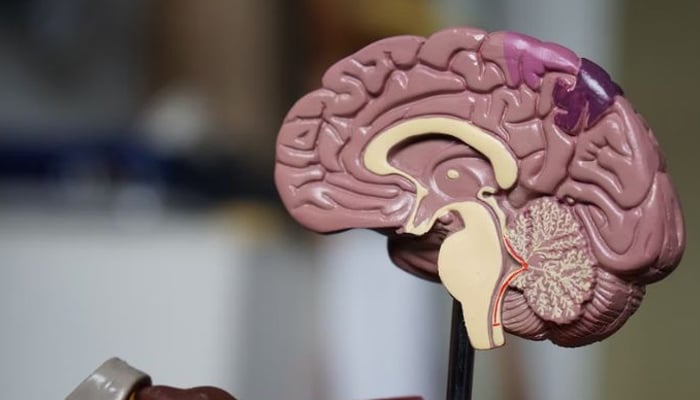Researchers don’t know why some people develop Alzheimer’s disease and others don’t. But they have identified several factors that increase your risk for Alzheimer’s, including genetics, said Professor Bashir Soomro at the seminar.
If you have a first-degree relative (a biological parent or sibling) with Alzheimer’s disease, the risk of developing the condition increases by 10% to 30%, said Prof. Soomro, who is a neurologist at Dr Ziauddin University Hospital and general secretary of Pakistan Society of Neurology, at a public health awareness meeting held in connection with World Alzheimer’s Day yesterday.
“Alzheimer’s disease is a form of ‘dementia’ that affects memory, thinking and behaviour. It is named after Alois Alzheimer, a German psychiatrist, who first described it. The brain is made up of billions of interconnected nerve cells. In Alzheimer’s disease, the connections between these cells are lost. “This disease causes 60-80% of people with dementia,” he said.
Professor Soomro, who is also the secretary of the Department of Neurology, College of Physicians Surgeons Pakistan and Fellow American Academy of Neurology, also explained: “Alzheimer’s disease is not a normal part of old age. The biggest known risk factor is advancing age, and most people with Alzheimer’s disease are 65 and older. Some people develop Alzheimer’s disease before the age of 65 – usually in their 40s or 50s. This is called early-onset Alzheimer’s disease. Less than 10% of Alzheimer’s disease cases are early-onset.
“It affects about 55 million people worldwide. One in 10 people over the age of 65 and about a third of people over the age of 85 have the disease.”
Symptoms eventually become severe enough to interfere with daily activities.
The most common symptom of Alzheimer’s is difficulty remembering recently learned information. Brain changes associated with Alzheimer’s disease lead to increased problems such as repeating sentences and questions over and over again, forgetting conversations, meetings or events, misplacing things, often putting them in incomprehensible places and getting lost in places they knew well, and finally forget the names of family members and everyday things.
Research shows that living a healthy lifestyle helps protect your brain from cognitive decline. The following strategies can help reduce the risk of developing Alzheimer’s disease:
– Play board games, read, do crossword puzzles, play a musical instrument or do other hobbies that require “brain power”.
– Establish a consistent exercise routine to improve overall health and reduce the risk of Alzheimer’s. Aim for at least 150 minutes of moderate aerobic exercise or 75 minutes of vigorous exercise each week. Exercise improves blood flow to the brain, promotes the release of brain-protective compounds, and maintains the health of brain cells; Exercise increases blood flow and oxygen to your brain, which can affect the health of brain cells.
– Eat a diet rich in fruits, vegetables, whole grains and lean proteins to boost brain health. Prioritize foods that contain antioxidants, such as berries and leafy greens, which fight brain inflammation and oxidative stress. Additionally, include omega-3 fatty acids from sources such as salmon and walnuts to reduce the risk of Alzheimer’s. It is recommended to drink alcohol in moderation and stop smoking.
Although there is still no cure for Alzheimer’s disease, there are several medications that can help with symptoms such as memory loss, changes in language, thinking and motor skills, and those who respond to treatment. these can get improvement in their health many times over. age.
Social interaction is the foundation of mental health. Regular interaction with friends and family, participating in group activities, and strengthening social relationships can maintain cognitive function. Loneliness and isolation are linked to an increased risk of Alzheimer’s.
Be vigilant about your general health, especially conditions such as high blood pressure, diabetes and high cholesterol, as they increase the risk of Alzheimer’s. Work closely with your doctor to manage these conditions effectively, advises Professor Bashir Soomro.
Jawwad Ahmed Khan, a digital marketing expert, said that anyone with dementia-like symptoms should see a neurologist immediately because several conditions – not just Alzheimer’s disease – can cause memory loss in adults. It is important to get a quick diagnosis and a proper treatment plan.
#expert #explains #healthy #lifestyle #protect #brain #cognitive #decline
